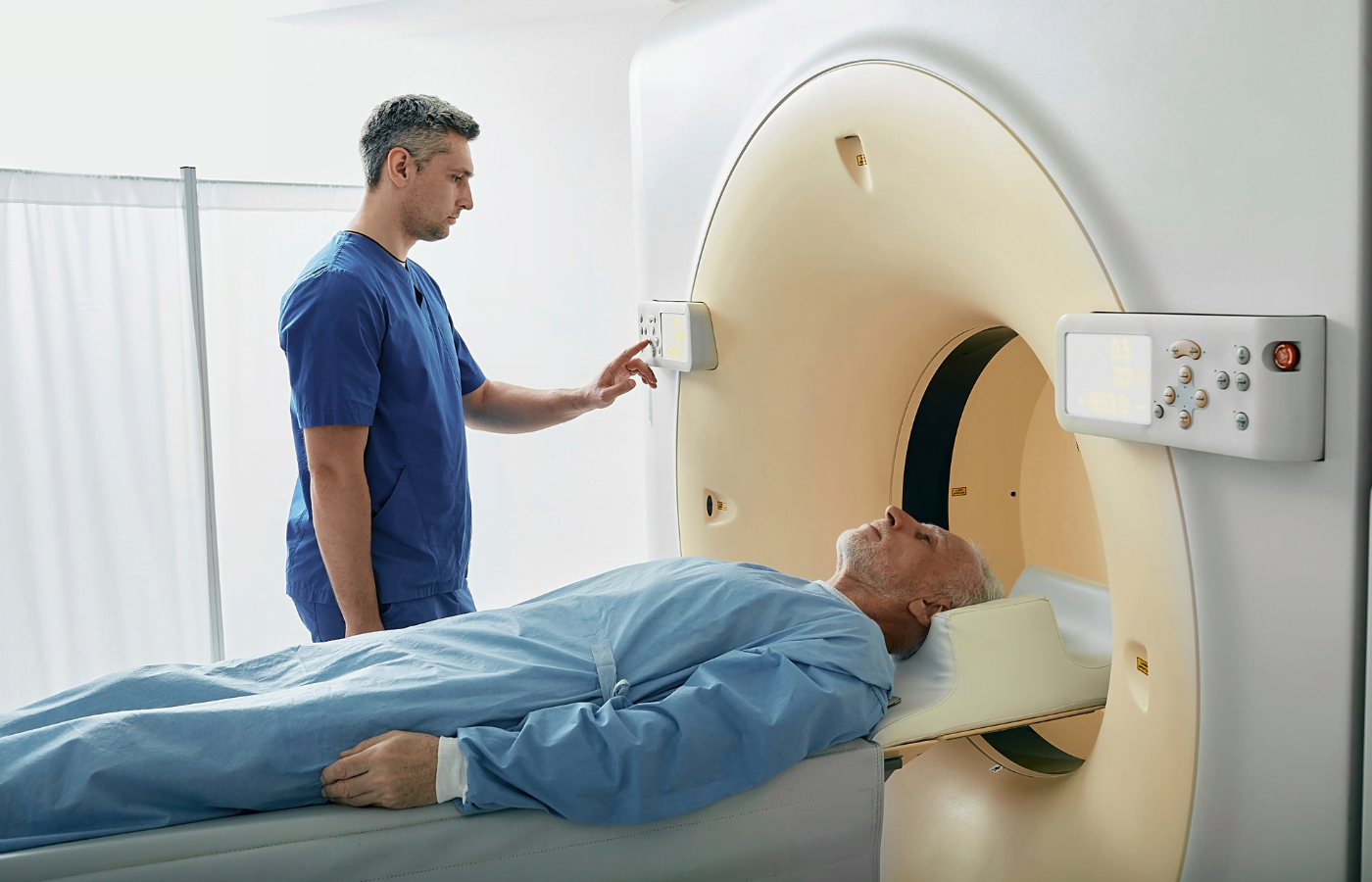
Medical imaging plays a crucial role in diagnosing various health conditions, and Computed Tomography (CT) scans are among the most advanced imaging techniques available today. Whether you're preparing for a scan or simply want to understand its benefits and risks, this guide will walk you through the CT scan procedure, what to expect, and how to find a shoulder X-ray at Diagnopein.
A CT scan (Computed Tomography scan) is a specialized imaging test that combines X-ray technology with computer processing to create detailed cross-sectional images of the body's internal structures. It is widely used to detect injuries, diagnose diseases, and monitor treatments.
1] Diagnosing fractures, tumors, and infections
2] Detecting internal bleeding and blood clots
3] Evaluating organ health (lungs, liver, kidneys, heart, etc.)
4] Identifying cancers and monitoring their progression
5] Planning medical treatments such as surgeries or radiation therapy
If you are scheduled for a CT scan procedure, knowing what to expect can help you feel more comfortable. The entire process is usually quick and painless.
Steps in a CT Scan Procedure:
1] Preparation: You may be asked to fast for a few hours before the scan, especially if contrast dye is used. Remove any metal objects (jewelry, belts, glasses) as they can interfere with the imaging. Inform your doctor if you are pregnant, have kidney issues, or have allergies to contrast dye.
2] During the Scan: You will lie on a motorized table that slides into the CT scanner. A rotating X-ray beam captures multiple images of the targeted area. If a contrast dye is used, it may be injected through an IV or given orally to enhance visibility. The entire scan takes between 5 to 30 minutes, depending on the area being examined.
3] Post-Scan: You can resume normal activities unless advised otherwise. If contrast dye was used, drinking plenty of fluids helps flush it out of your system. Your doctor will review the results and discuss the findings with you.
CT scans offer several advantages in diagnosing and treating medical conditions:
1] High-Quality Imaging: Provides detailed and precise images for accurate diagnosis.
2] Quick and Non-Invasive: The procedure is fast and requires no surgical intervention.
3] Detects Life-Threatening Conditions: Helps identify tumors, strokes, blood clots, and internal injuries early.
4] Guides Treatment Plans: Assists doctors in planning surgeries, radiation therapy, and other medical treatments.
5] Monitors Disease Progression: Useful in tracking the effectiveness of treatments for chronic diseases.
While CT scans are generally safe, they do come with some risks:
1] Radiation Exposure: CT scans use X-rays, which expose the body to a small amount of radiation. However, modern technology minimizes the risk.
2] Allergic Reactions to Contrast Dye: Some patients may experience mild allergic reactions to the dye used in certain scans.
3] Pregnancy Concerns: Pregnant women should consult their doctor before undergoing a CT scan to avoid potential risks to the baby.
If you're looking for a CT scan near me, Diagnopein is a trusted healthcare provider offering top-quality imaging services at affordable prices.
1] State-of-the-Art Imaging Technology ensuring high precision.
2] Expert Radiologists for accurate analysis of reports.
3] Affordable Pricing without compromising quality.
4] Multiple Locations across Pune, Mumbai, Delhi, Nagpur, Ahmednagar, and Bhopal.
5] Patient-Centric Approach ensuring comfort and minimal waiting time.
CT scans play a vital role in diagnosing and managing medical conditions effectively. Understanding the CT scan procedure, benefits, and potential risks can help you make informed healthcare decisions. If you need a CT scan near me, choose Diagnopein for reliable and affordable diagnostic services.